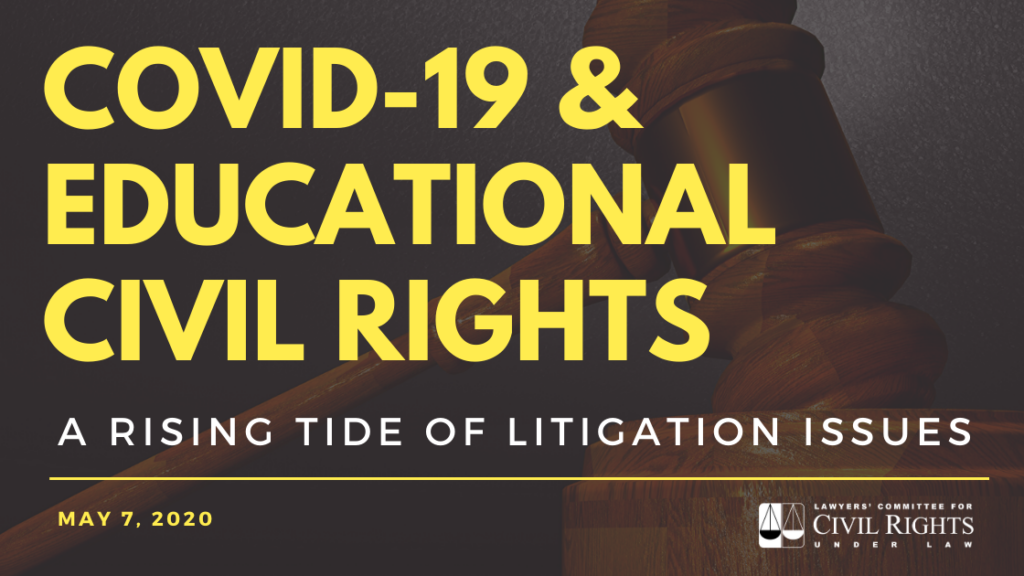
COVID-19 has wreaked unprecedented havoc on families, schools and school districts across the nation. Above all, it has magnified racial and ethnic inequities not just in schools, but also across communities and states. While states and school districts have physically closed many schools, they still have duties to deliver a quality education to every child and to deliver that education in an equitable and meaningful manner. The challenges for underserved communities of color are only expected to grow as the end of the crisis remains elusive and states grapple with decreasing budgets.
On May 7th, a group of prominent, national civil rights litigators discussed various considerations state and district leaders and local stakeholders should be accounting for in making short-term and long-term educational decisions and how federal and state civil rights laws may be a springboard for communities to act upon in the courts should policymakers and education leaders fail underserved students of color (including English Learners and students with disabilities) and their schools.
Moderator:
David Hinojosa, Director, Educational Opportunities Project, Lawyers’ Committee for Civil Rights Under Law
Panelists:
Selene Almazan, Legal Director, Council of Parent Attorneys and Advocates, Inc.
Mark Dorosin, Managing Attorney, Lawyers’ Committee for Civil Rights Under Law
Sarah Hinger, Senior Staff Attorney, ACLU Racial Justice Program
Kathryn Eidmann, Robins Kaplan Supervisory Senior Attorney, Public Counsel
Deuel Ross, Senior Counsel, NAACP Legal Defense and Educational Fund, Inc.
David Sciarra, Executive Director, Education Law Center
Brenda Shum, Senior Directing Attorney, National Center for Youth Law
Resources:
Presentation Slides
Video Recording
